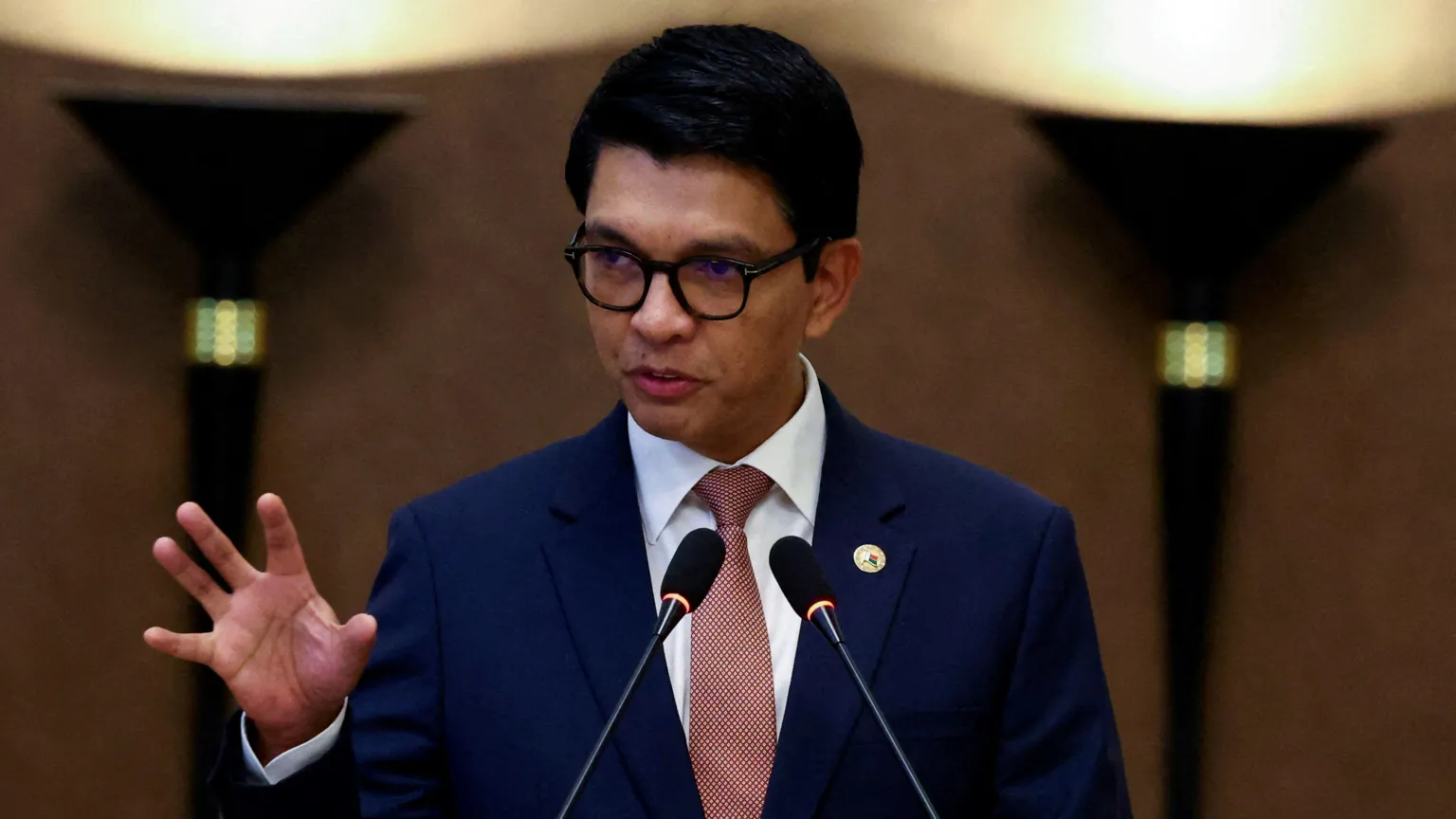Madagascar’s President Andry Rajoelina has said he is hiding in a “safe place” after what he described as an assassination attempt and a planned coup, following weeks of street protests calling for his resignation.
In a live Facebook broadcast to the nation, Rajoelina, 51, claimed that “a group of military personnel and politicians planned to assassinate me.” He did not reveal his current location, though earlier unconfirmed reports suggested he may have fled the country on a French military aircraft.
His remarks came after two weeks of unrest led largely by young protesters under the “Gen Z Mada” movement, who have demanded his resignation. Attempts by Rajoelina to calm the demonstrators — including sacking his entire cabinet and announcing new reforms — have failed to ease tensions.
Rajoelina had not appeared in public since Wednesday, fueling speculation about his whereabouts. Over the weekend, his office confirmed that an effort was underway to remove him from power.
His address to the nation on Monday was delayed several times as chaos gripped the capital, Antananarivo, with soldiers reportedly threatening to seize control of state television.
When he finally appeared online, the president said: “Since 25 September, there have been attempts on my life and coup attempts. A group of military personnel and politicians planned to assassinate me. I was forced to find a safe place to protect my life.”
He added that “there is only one way to resolve these issues; that is to respect the constitution in force in the country.”
The crisis deepened over the weekend when CAPSAT, a powerful army unit that helped bring Rajoelina to power in 2009, declared itself in control of all armed forces. Some of its officers joined protesters on the streets, signaling growing military divisions.
Following a Monday meeting of top commanders, the newly installed Chief of Army Staff, Gen Demosthene Pikulas, assured citizens that security forces were working together to maintain order.
By evening, Gen Pikulas was at state TV headquarters, where he sought to defuse the escalating crisis, according to a statement from the presidency.
A senior leader from the opposition party TIM, speaking anonymously to the BBC, said the army unit was now effectively running the country.
The TIM party also announced plans to initiate impeachment proceedings against Rajoelina, accusing him of “abandonment of post.”
Several of Rajoelina’s close allies have fled to Mauritius, including former Prime Minister Richard Ravalomanana and businessman Maminiaina Ravatomanga.
The unrest has roots in growing public frustration over water and power shortages, which soon broadened into protests over unemployment, corruption, and the rising cost of living.
According to the UN, at least 22 people have been killed and more than 100 injured in the demonstrations, though the government disputes these figures.
Witnesses have reported security forces firing live bullets at protesters and using tear gas, which in one incident led to the death of a newborn baby from smoke inhalation.
Despite its vast natural wealth, Madagascar remains one of the world’s poorest nations. The World Bank estimates that around 75% of its population lives below the poverty line, while IMF data shows that only about a third of citizens have access to electricity.
The Indian Ocean island has a long history of political turmoil.
In 2009, mass demonstrations forced then-President Marc Ravalomanana to resign, paving the way for Rajoelina’s rise to power at just 34, making him Africa’s youngest leader at the time.
Before entering politics, Rajoelina was a successful entrepreneur and DJ who founded a radio station and advertising company.
However, his once-youthful image and reformist appeal have been overshadowed by accusations of cronyism and entrenched corruption that continue to haunt his presidency.
